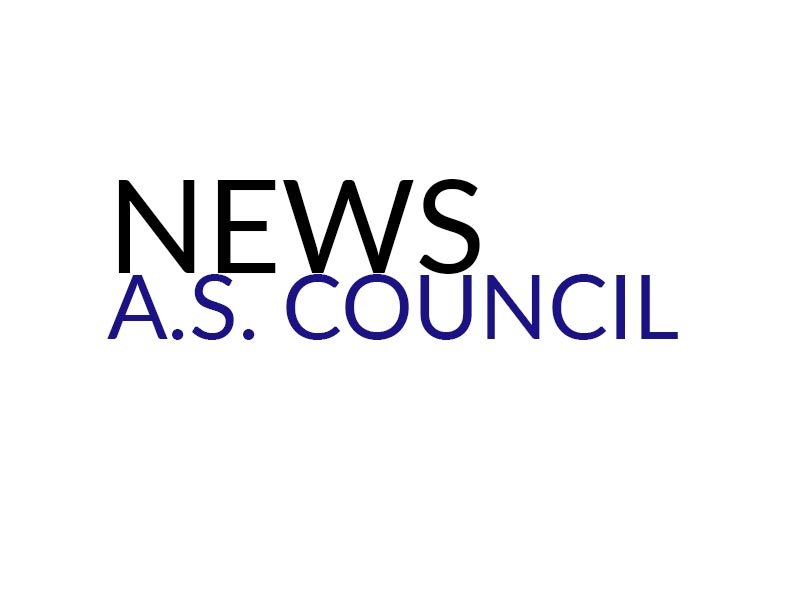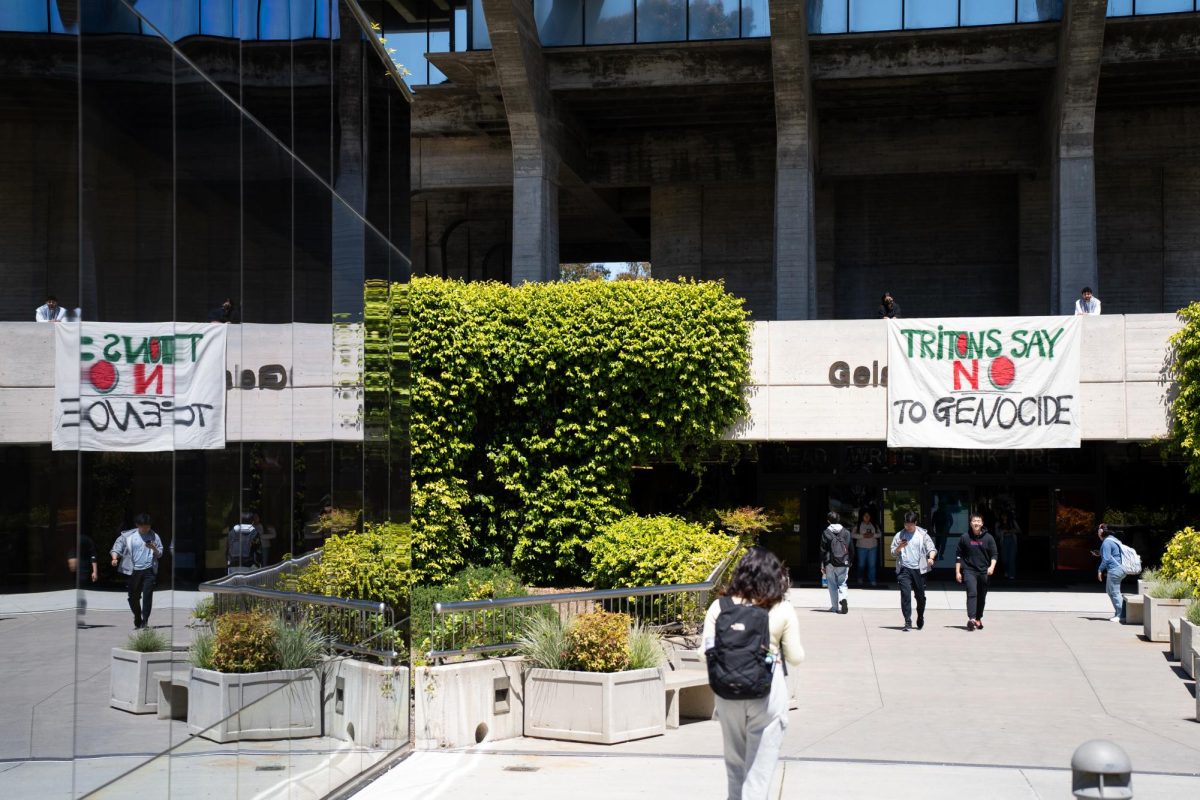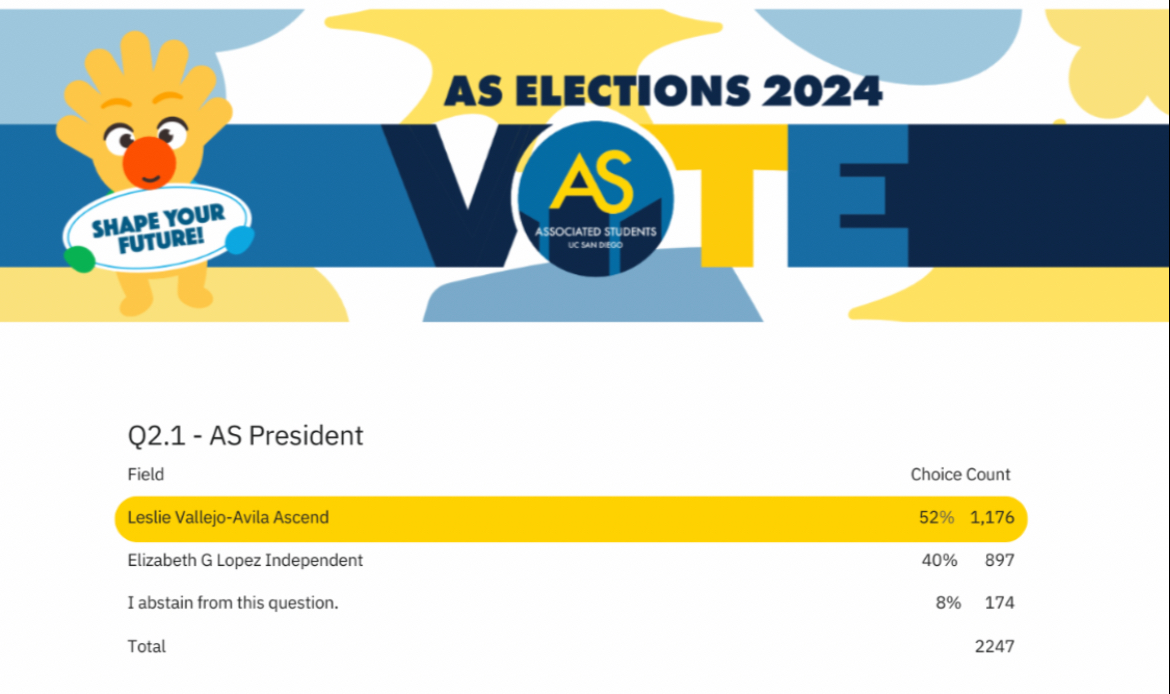Disclaimer: The weekly A.S. Council column is not meant to be a news story but rather an individualized account of what occurs at Council meetings. If the most interesting part of a three-hour meeting is President Suvonnasupa’s haircut or an outburst from Senator O’Neill, the writer has the stylistic freedom to mention that in his column.
Several days ago, I would have never known that Turkish government bonds could be so contentious. But they were the most discussed topic at this week’s A.S Council meeting. Today, the Council was going to be voting on a resolution to divest money from the Republic of Turkey. Currently, the University of California owns 74 million dollars of Turkish government bonds. The room was full of students who supported the divestment.
The first member of the public to speak was the man who gave public input last week, and he once again brought reading material. I saw him when I first came in, and I knew he wasn’t there to discuss the divestment resolution. Rather, he discussed the Olympic success of athletes who graduated from UC Berkeley and USC. He encouraged the Council to take a bus down to Mission Bay to watch the rowing team during their practice. I hope the members of the Council understood his point better than I did.
The majority of public input came from the Armenian student community at UCSD. Among the first to speak was Arijua Boodahian, who discussed her ethical objections with lending to Turkey. She explained that the country censors education regarding the Armenian community and dismisses the Armenian Genocide. In fact, it is illegal to call the systematic extermination of Armenians within Turkey “genocide.” Ani Araklian explained that Armenians in Turkey continue to face persecution, citing examples like the occupation of Camp Armen. After many other Armenian students had spoken, Anahit Topchyan concluded by saying that the resolution to divest is about raising awareness of the genocide denial and persecution that is happening in Turkey as well as holding the University of California accountable for their investment of student tuition money.
The first of two special presentations was given by Director of Physical and Community Planning Robert Klossen and Associate Director of Transportation Services Todd Berven. They were there to discuss upcoming transportation and parking, both of which students struggle with every day. Right now, UCSD is going through what they called a perfect storm. There are many construction projects planned by both the University as well as private and municipal projects. There are going to be a lot of changes in the coming years, so if you don’t live in San Diego, I hope you have a younger sibling who you can convince to attend UCSD. The main projects that were discussed were the Light Rail Transit, the Gilman Drive Bridge — which connects east and west campus — and the North Torrey Pines Learning Living Neighborhood. The Rail project, they hope, will begin construction later this year. With it comes the Rail station near Pepper Canyon Hall. From the concept photo, this thing is shaping up to be pretty cool. The Gilman Drive bridge is meant to be complete in the fall of 2017, along with the Learning Living Neighborhood, which will be built where the Muir Parking Lot is. Parking was another important issue that Robert and Todd discussed. With every large and small project, parking spots will be displaced. However, more parking spots will become available. First, there will be a restriction on freshman purchases of parking permits starting in the fall of 2016. Also, by 2021, there will be a net gain of 5,000 parking spots throughout all of the construction projects. However, there will also be many more students, so the university is simply trying to keep up with demand. As of now, it looks like there are a lot of exciting projects on the horizon, but parking will continue to be an issue. You can learn more at OnTheGo.ucsd.edu.
The next special presentation was given by members of the Armenian Genocide Commemoration Committee, including the Chair of the Committee. They began with the history of Armenians in Turkey, or what was then the Ottoman Empire. They explained that Armenians were treated as second-class citizens. The Armenian Genocide itself took place between 1915 and 1923 during which 1.5 million Armenians were killed while others were jailed. Today, the Turkish government perpetrates genocide denial through censorship and the illegality of calling the Armenian Genocide a genocide. The Committee then argued in favor of divestment — the reduction of an asset based on an ethical objection. They argue that investment in Turkish government bonds is an endorsement of the policies and actions of the Turkish government. Six of the UC campuses have already passed resolutions calling for divestment and if UCSD does as well, the resolution goes to the UC Board of Regents to decide on.
After their presentation, the resolution was up for a vote. Fairly unsurprisingly, the resolution passed unanimously (25-0-0). Upon the passage of the resolution, the Armenian Genocide Commemoration Committee applauded the Council. Several minutes later, Kriti and I were, as is usually the case, the only two members of the public left at the Council meeting.
The last important issue discussed by the Council was brought up by Senator Roger O’Neill during the open forum. He asked the Council what their opinion was about being filmed and streamed online, a service provided by the UCSD Guardian via Periscope. President Dominick Suvonnasupa explained that transparency is important and that they should welcome the opportunity to have their meeting recorded. Personally, I think livestreaming the Council meetings is such a great way to get rid of the A.S Council columnist. What am I needed for anymore? This is an age-old case of technology destroying traditional media. But I am glad the Council approves of being watched.








